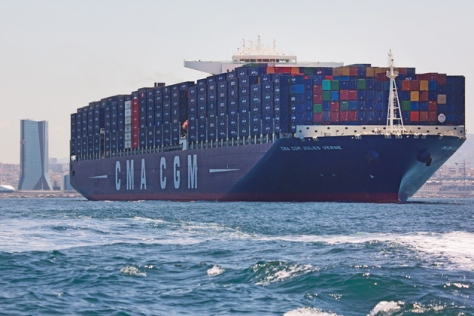 When relocating to foreign countries, you have three alternatives for moving home: go away with absolutely nothing, go away with a few things, or shift all your household furniture and personal belongings by using an international removals company. International shipping might be complicated and time intensive, however here is some tips on the best way to cope with it.
When relocating to foreign countries, you have three alternatives for moving home: go away with absolutely nothing, go away with a few things, or shift all your household furniture and personal belongings by using an international removals company. International shipping might be complicated and time intensive, however here is some tips on the best way to cope with it.
Sell it or ‘sea’ it
An international relocation will invariably be very expensive. And the best way to cut down expense is to clear away all of that ‘goods’. Kathleen Peddicord, writer and overseas specialist, writes in her post ’17 issues I wish somebody had said to me just before moving day’:
“You are definitely better off not moving your household pieces and household furniture with you. I would advise you sell everything or give it all away before the move. I wasn’t able to bring myself to do this, and now I regret all of the annoyance and cost in connection with transferring a huge house full of household furniture from one continent to another.”
Willeter says relocation businesses, “…are definitely witnessing an increase in shorter term assignments more than longer term.” Even more reason to pack light.
On the other hand, repatriating tends to carry more exotic ‘baggage’ that is piled up in a stay in another country, and regular items now carry sentimental worth for the typical repat. When push comes to shove, all of these one-of-a-kind furnishings are often more difficult to release.
Should this be the scenario, shipping worldwide is the usual choice, and contacting a removal business is a must. Willeter admits that in the long run, repatriates won’t experience much of a difference with removal firms in comparison with when they expatriated, apart from workers saying, “Welcome back.”
Thankfully for expats going through the same procedure as before, organising a moving approach should really be far more familiar.
“Figuring out that a client is a ‘seasoned expat’ will not automatically help with their ability to acclimatise to a new destination, nonetheless they will ideally be a little more prepared for the dynamics of the move itself,” he adds.
Here are five top tips and hints
Despite experience, moving internationally is a massive, challenging process. Overconfidence can be as dangerous as lack of experience. The truth is, expatriates returning home in many cases are up against more bureaucratic work that formerly predicted. Do you know the laws your home country has in place for relocating goods back in?
“I often hear numerous French clientele being amazed at the level of ‘red tape’ that even they are confronted by when they come home.”
To help produce an agenda for your move, the following are five important issues to remember:
1. Use a global moving firm
Hire a relocation organization, or get prepared for a full-time job. If you’d like to do this all on your own, be ready to spend several weeks contacting companies for quotes and filling out documents for customs, port documents, insurance protection plus much more.
You do not know how many pieces of paper you produce; you generate an entire stack of paper to do this. However if you use a relocation organization, they carry out all that for you.
2. You certainly need insurance cover
On the scarce occasion that a storm strikes the cargo carrier and your container drops into the ocean, once again, this is exceptionally unlikely, but it has happened before. Insurance generally covers the complete loss of a container within the arrangement.
3. Keep your freight separate
Confusion isn’t the most significant problem, it’s confiscation. Should the police come across something illegitimate they might take everything in the container, so all of your special antique items and everything are gone.
It’s firmly encouraged to try to fill or rent a whole container when repatriating home.
4. Remember the middle man
Be certain that home furniture such as exotic lamps, hi-tech electronics as well as one-of-a-kind furniture have the necessary connections to operate away from the country where purchased. From plug adapters to a particular bedsheets, make sure your ideal setup can be achieved the same as it was in your host country.
5. Don’t forget to lock up (and unlock)
The best advice for any individual emigrating overseas with shipments en route is basic – don’t pack your property keys in the sea shipment!


 Before the emigration
Before the emigration![80_745_420_photog_ship_michael_s_nolan_crp_mini[1]](https://internationalremovals.wordpress.com/wp-content/uploads/2015/05/80_745_420_photog_ship_michael_s_nolan_crp_mini1.jpg?w=300&h=169)
